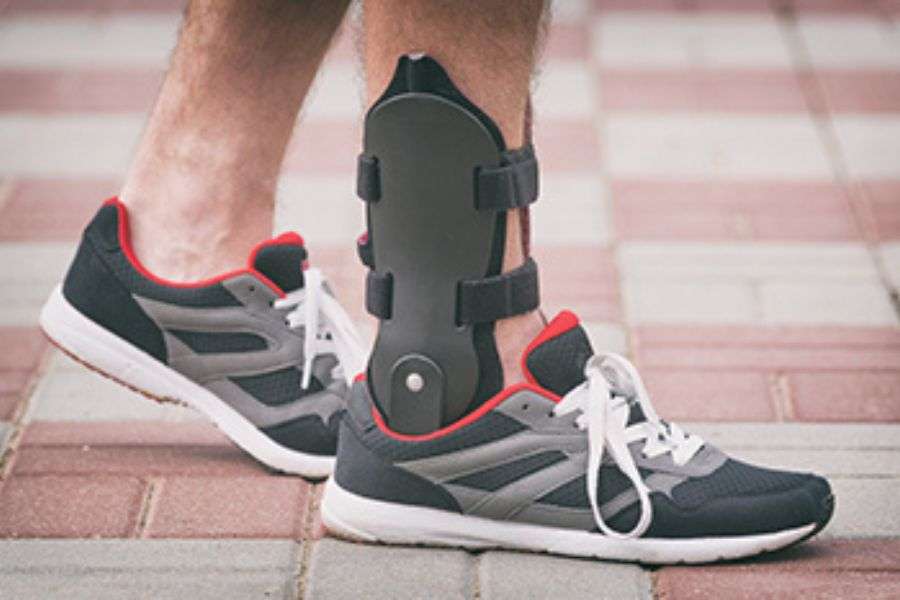Charcot Marie Tooth Disease
Overview

Charcot-Marie-Tooth disease is a hereditary disorder that affects the peripheral nerves, causing weakness in the arms and legsHereditary motor and sensory neuropathy is a genetic condition that impacts both the motor and sensory nerves.
This leads to nerve damage, resulting in smaller and weaker muscles, which can cause difficulties in walking and mobility. People with this disease may also experience muscle contractions and loss of sensation, primarily in the feet and legs.
Additionally, foot deformities like hammertoes and high arches are common. While the symptoms usually start in the feet and legs, they may eventually progress to affect the hands and arms. Treatment options include physical therapy, orthopedic devices, and medication to manage symptoms.
Symptoms
Causes & Risks
• CMT is a neurological disorder caused by genetic mutations affecting peripheral nerves. It is hereditary in nature.
• It leads to progressive muscle weakness and wasting in the feet, legs, hands, and arms.
• Mutations in genes related to nerve structure, myelin production, or nerve signal transmission contribute to CMT.
• Risks involve a family history of CMT, as it is often inherited.
• The disorder's diverse genetic origins result in varying severity and progression among affected individuals.
• Supportive treatments aim to manage symptoms and improve the patient's quality of life, as there is currently no cure.
Test & Diagnosis
• During checkups, your doctor assesses for weak muscles, reduced muscle mass, diminished reflexes, sensory loss, foot issues, and other bone problems.
• Various tests may be recommended to determine the extent and cause of nerve damage, including nerve conduction studies, electromyography, nerve biopsy, and genetic testing.
• Nerve conduction studies evaluate the strength and speed of electrical signals in nerves, while electromyography assesses muscle electrical activity.
• A nerve biopsy involves analyzing a small portion of the peripheral nerve from the calf in a laboratory.
• Genetic testing, typically done with a blood sample, can identify common genetic issues linked to Charcot-Marie-Tooth disease.
• If needed, your doctor may refer you to a genetic counselor for assistance in understanding the benefits and drawbacks of genetic testing.
Treatment
• Charcot-Marie-Tooth disease has no cure, but its slow progression doesn't affect lifespan.
• Treatments focus on managing symptoms.
• Medications: Prescription pain meds can control pain from muscle cramps or nerve damage.
• Therapy: Physical therapy stretches and strengthens muscles, preventing tightening and disability. Occupational therapy aids in daily activities affected by arm and hand weakness.
• Custom-made shoes, shoe inserts, ankle braces, or splints may improve mobility.
Living With
Charcot Marie Tooth Disease (CMT) is a genetic neurological condition that affects the peripheral nerves, causing muscle weakness and wasting. Although it is not life-threatening, it can make daily activities challenging and impact the quality of life.
People living with CMT may experience difficulty walking, running, and even holding objects, which can lead to social isolation and depression. Furthermore, the condition is progressive, meaning that symptoms can worsen over time, causing further limitations and requiring more adaptive equipment.
However, with proper management and support, people with CMT can lead fulfilling lives. Treatment options include physical therapy, assistive devices, and in some cases, surgery, which can help manage symptoms and improve mobility.
Complications
• CMT is a genetic disorder that affects peripheral nerves, causing neurological problems. It is important to identify and address medical conditions early on in order to improve the chances of successful treatment and better outcomes.
• Complications vary in severity, with foot abnormalities and walking difficulties being common.
• Weakening of foot muscles over time increases injury susceptibility in areas with decreased sensation.
• Impaired signals from muscles increase risk of tripping and falling.
• CMT can also affect muscles controlling breathing, swallowing, and speaking, causing difficulties.
• Collaborating with healthcare professionals is crucial for symptom management and complication prevention in CMT.

The Content is not intended to be a substitute for professional medical advice, diagnosis, or treatment. Always seek the advice of your physician or other qualified health provider with any questions you may have regarding a medical condition.
Know more about
Our Healthcare Planner
Personal Health Planner at BNC is a support staff who listens to your concerns and connects you with a Neuro Care provider. They prioritize your needs and create a trusting relationship between you and the provider.
Three fundamental values we can assure you:
1. Personalized Healthcare.
2. Most advanced robotic therapies
3. Transparent pricing





